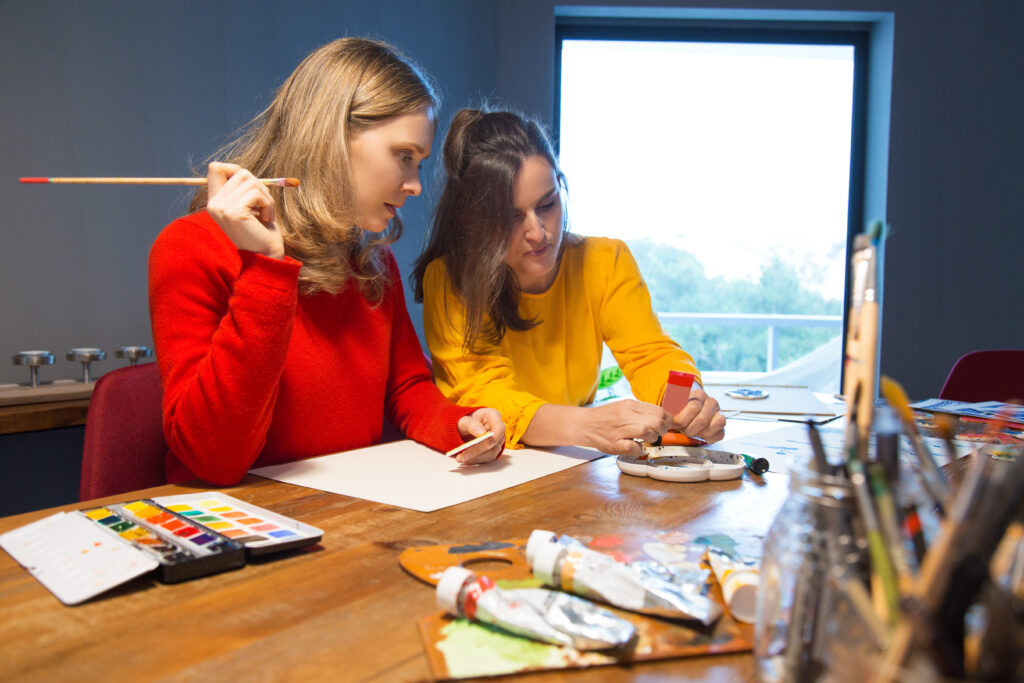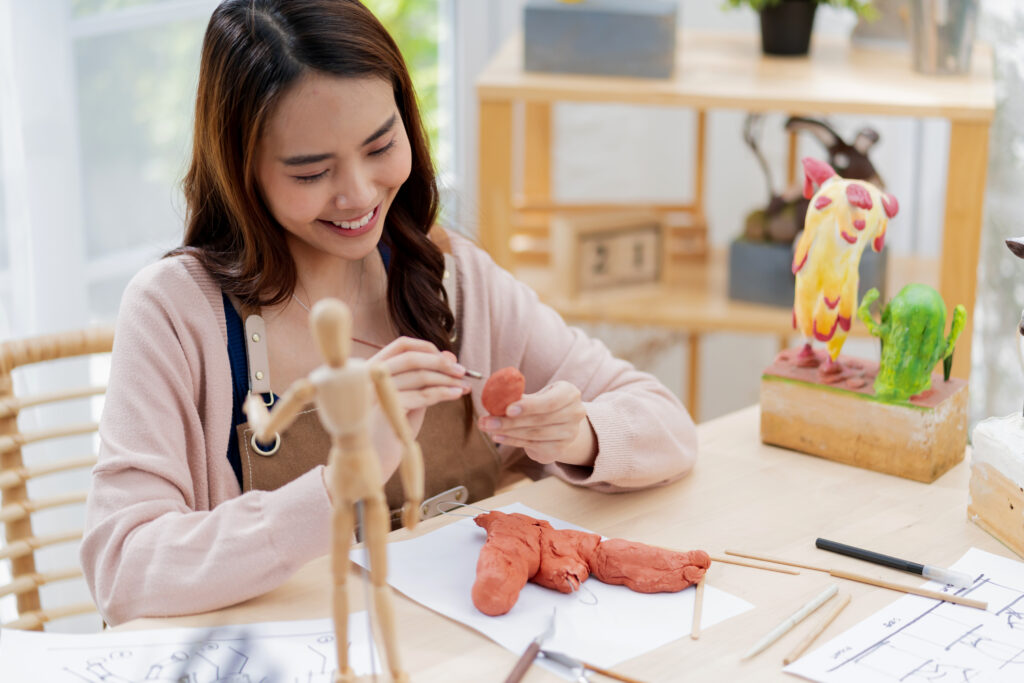7 Tips For Expanding Your Skills : Like any skill, practicing your craft regularly is key to becoming more skilled at it. However, sometimes practice doesn’t translate to improvement – maybe your projects have plateaued or perhaps you find certain techniques difficult – don’t despair; this is completely normal!
1) Set Small Goals

If you find yourself experiencing creative blocks and want to break free, setting small goals may help break through it. These may range from trying out a new technique or making something for a particular occasion (painting, craft) as a great way of challenging yourself and pushing out of your comfort zone.
If your goal involves trying a new type of project, make sure that you set aside enough time and space for its completion. Being creative requires giving yourself enough space and time – don’t stress out trying to squeeze something creative into between work hours and caring for children!
2) Take Classes

Attending classes can be an excellent way to both refine and meet others who share your passion, providing invaluable motivation and inspiration. However, making the most out of a class requires having some foundation in what the material entails; therefore if you are new to any craft it would be wiser to start by attending some introductory-level sessions before expanding further with more advanced material.
Don’t be intimidated to explore what classes are available near you and to try something different – who knows, maybe you will discover a new passion or skill! Even if there’s no class nearby, online resources and videos may offer resources you need.
3) Try Different Mediums And Techniques

Tired of Working the Same Old Way? Why not expand into different areas of your craft? For instance, in painting you may usually use watercolors but give acrylic paintings a try? Or vice versa – try watercolor paintings when doing acrylics?
Try new techniques within the same medium. For instance, when painting with watercolors you could try different brush types; or if acrylics is what you normally use why not give gouache a try instead? Experimentation can help break out of creative ruts and produce unexpected results.
4) Find Online Resources And Tutorials

Are there specific techniques or projects you want to try but need assistance with, such as crafting cards for birthdays but don’t know how? For instance, there may be tutorials online dedicated solely to card-making that might come in handy here. For instance if you need an idea on card-making techniques but are struggling with how to proceed then look online for tutorials dedicated to that subject matter – for instance searching card making tutorials might help!
There are also plenty of excellent tutorials on specific art techniques like watercolor painting, acrylic painting and digital art that you can find online. There are also various forums and communities where artists can come together and exchange opinions and ask for advice from other artists.
5) Experiment With New Tools And Materials
Are You Stuck in a Creative Rut? One way out may be trying new tools and materials; otherwise you could become bored with your work and less imaginative in doing it. If this is something that feels familiar to you, an easy way out could be switching up what tools and materials you’re using; perhaps trying paint rollers for watercoloring instead.
Or you could switch up the materials and tools you are used to using by mixing in acrylics instead of watercolors with stencils, for instance. Experimenting with new types of brushes, paints and so forth is also great way of breaking out of creative ruts while finding innovative new approaches to producing work!
6) Network With Other Artists

Surrounding yourself with fellow artists can help break free of creative blocks and keep the passion alive when pursuing any craft. Join local art or craft groups, online art groups or message them with updates on what interests and what activities have taken place recently – or try online forums and communities where like-minded individuals may join the discussion!
If you enjoy any form of art or craft, meeting like-minded individuals could provide valuable inspiration. Plus, meeting like-minded folks could lead to collaboration or feedback on your work!
7) Research Your Craft And Why You Love Doing It

If you’re stuck and searching for ways out, exploring more of your craft may help break out of creative rut. Explore its history or try different types of painting, photography or sculpting; perhaps even try learning some history or exploring variations as ways out.
Examine the materials you use in your craft, such as different types of paint and brushes. Gaining more insight into your activities may give you new perspective and break free of a rut in your work.
Also refer to: The Best Hobbies for Adults: 9 Activities That Will Keep You Happy and Healthy
Conclusion
Practice makes perfect. If you find that your craft has plateaued or backtracked, set small goals, experiment with different materials and techniques and research about it as ways out. If that fails to do the trick, set creative rut-breaking goals! If that fails too, set goals that include new methods of learning such as journal writing.
Discover different variations and approaches to your craft – this can help break out of creative blocks and inspire more work! Taking these few steps may give your inspiration back.

